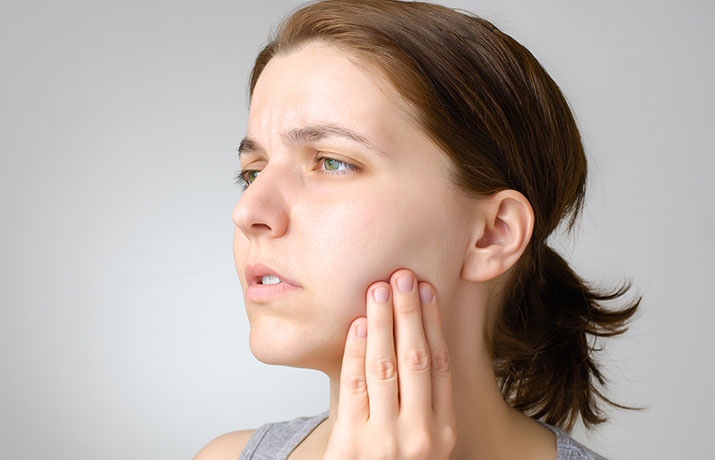Temporomandibular joint and muscle disorders (TMJ) is caused by chronic stress on the temporomandibular joint. Excessive stress is frequently caused by a bite misalignment or a muscle imbalance in the jaw. Chronic TMJ stress may cause the region’s ligaments to stretch out. To compensate for the stretched ligaments, the jaw muscles may shorten or lengthen.
A TMJ flare up is the occurrence of new symptoms related to temporomandibular joint dysfunction, or the worsening of existing symptoms. Flare-ups frequently occur unexpectedly and without warning.
According to the National Institute of Dental and Craniofacial Research, TMD affects between 5% and 12% of the population. TMJ disorders affect at least twice as many women as men, and women who use oral contraceptives or supplemental estrogen are more prone to this condition.
This article will explain how long TMJ flare ups typically last, what factors can cause them, and what to do if you experience one.
Average TMJ Flare Up Duration
Individual flare ups differ depending on the underlying cause or trigger. The length of a flare up can also be influenced by whether or not TMJ disorder is actively managed by a doctor. Most flare ups last between two days up to several weeks.
A TMJ flare up can cause one or more of the following symptoms:
- Constant or intermittent pain in and around the jaw joint
- Headaches
- Noticeable clicking or popping sounds when opening and/or closing the mouth
- Earaches
- Neck and/or shoulder pain
- Facial swelling
- Limited range of jaw motion
- Lock jaw
Factors That May Cause a TMJ Flare Up
Stress is one of the leading causes of TMJ flare ups. Stressful situations frequently cause teeth grinding or clenching, which can aggravate TMJ symptoms. Chewy, hard, or crunchy foods can trigger flare ups. Eating whole apples, nuts, tough meat cuts, crunchy bagels or raw carrots are all examples. Injury or trauma to the jaw can almost always result in the onset of painful symptoms.
Other factors that can cause a TMJ flare up include dehydration, vitamin D deficiency, hormonal changes, and even poor posture, which causes tension on the TMJ and other facial structures.
How to Deal with a Flare Up
If you are experiencing a TMJ flare up, your first step should be to consult with a knowledgeable TMJ doctor. Make an appointment as soon as possible to evaluate your TMJ. Your doctor will then recommend strategies to alleviate discomfort and symptoms. Your doctor will also advise you on how to address the underlying cause of your TMJ issues.
There are few home remedies that can help manage your TMJ flare ups before consulting a doctor. The following may provide quick, temporary relief:
- Taking pain relieving OTC medicines
- Avoiding food that is difficult to chew
- Gently massaging the jaw
- Applying heat or cold to the jaw
- Minimizing stress and anxiety
You may be looking for immediate relief from excruciating jaw pain, and the suggestions above may assist you. However, these solutions are only temporary. An experienced TMJ dentist can help control your TMJ symptoms and keep them from worsening.




